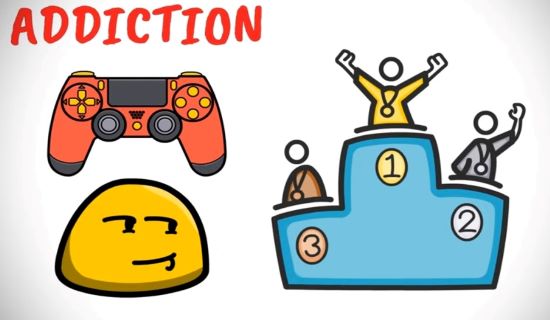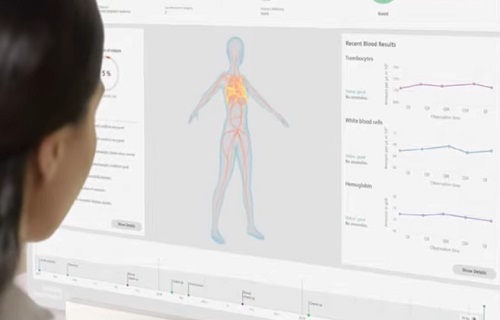There is a neurotransmitter inside our brain that is responsible for many important decisions we make in our lives. While it causes many actions with the reward mechanism it creates, it provides us with a very important benefit by enabling us to learn from our past mistakes. This mystery helper called Dopamine. There are a lot of complicated and wrong information on web about dopamin and dopamin treatment that could be cause serious effect on life.


What is Dopamine ?
Dopamine is a neurotransmitter that plays a number of important roles in the brain and body. It is involved in movement, attention, learning, and emotional control, among other things. Dopamine is often referred to as the “feel-good” neurotransmitter, as it is released in response to pleasurable experiences and can help to create feelings of happiness and well-being. Dysfunction of the dopamine system has been linked to a number of mental health conditions, such as depression and addiction.
What is Importance of Dopamine ?
Dopamine is important for a number of functions in the body and life. Some of the key roles of dopamine include:
- Movement: Dopamine plays a key role in the control of movement and coordination. It helps to initiate and control voluntary movement and can also be involved in the regulation of reflexes.
- Attention: Dopamine is involved in the regulation of attention and focus. It is thought to help keep the brain’s attentional systems active and engaged.
- Learning: Dopamine is important for learning and memory. It helps to reinforce pleasurable experiences and can be involved in the formation of new memories.
- Emotional control: Dopamine is involved in the regulation of emotions and can help to modulate mood and pleasure.
- Motivation: Dopamine is involved in the reward system of the brain and can help to create feelings of motivation and drive.
- Appetite: Dopamine can also be involved in the regulation of appetite and food intake.
Overall, dopamine is an important neurotransmitter that helps to regulate a wide range of functions in the body and is essential for a healthy and balanced life.
What is Dopamin Inhibitory ?
Dopamine has both inhibitory and excitatory effects on the brain, depending on the type of dopamine receptor it activates. Dopamine can be inhibitory when it activates dopamine D2 receptors, which are found on inhibitory neurons in the brain. When dopamine activates these receptors, it can inhibit the firing of these neurons, which can lead to a decrease in the activity of certain brain circuits.
Dopamine can also have excitatory effects when it activates dopamine D1 receptors, which are found on excitatory neurons in the brain. When dopamine activates these receptors, it can increase the firing of these neurons, which can lead to an increase in the activity of certain brain circuits.
Overall, the inhibitory effects of dopamine are thought to help regulate and balance the activity of the brain and prevent over-excitation of certain brain circuits. Dysfunction of the dopamine system, including imbalances in inhibitory and excitatory dopamine signaling, has been linked to a number of mental health conditions, including addiction and psychosis.



Dopamine Disorders :
Dopamine disorders refer to conditions that involve abnormal dopamine signaling in the brain. Dysfunction of the dopamine system has been linked to a number of mental health conditions, including:
- Schizophrenia: Schizophrenia is a serious mental illness that is characterized by abnormal thinking, delusions, and hallucinations. It is thought to be related to imbalances in dopamine signaling in the brain.
- Depression: Depression is a mood disorder that is characterized by persistent feelings of sadness and loss of interest in activities. It is thought that abnormalities in dopamine signaling may play a role in the development of depression.
- ADHD: Attention deficit hyperactivity disorder (ADHD) is a neurodevelopmental disorder that is characterized by difficulty paying attention, impulsivity, and hyperactivity. It is thought to be related to imbalances in dopamine signaling in the brain.
- Addiction: Dopamine is involved in the brain’s reward system and is released in response to pleasurable experiences. Abnormalities in dopamine signaling have been linked to the development of addiction, as drugs of abuse can artificially increase dopamine levels in the brain, leading to a cycle of drug seeking and use.
Dopamine disorders refer to conditions that involve abnormal dopamine signaling in the brain and can lead to a range of symptoms and impairments in functioning. Treatment for dopamine disorders often involves medications that can help to balance dopamine levels and improve symptoms.
Low Dopamine Level :
Low levels of dopamine can be associated with a number of risks and negative consequences. Some of the risks associated with low dopamine levels include:
- Decreased motivation and drive: Dopamine is involved in the brain’s reward system and helps to create feelings of motivation and drive. Low levels of dopamine can lead to a lack of motivation and difficulty feeling motivated to engage in activities.
- Depression: Low levels of dopamine have been linked to the development of depression, as dopamine plays a role in the regulation of mood and pleasure.
- Decreased focus and attention: Dopamine is also involved in the regulation of attention and focus, and low levels of dopamine can lead to difficulty paying attention and staying focused.
- Impairments in learning and memory: Dopamine is important for learning and memory, and low levels of dopamine can lead to difficulties with learning and memory formation.
- Decreased pleasure and enjoyment: Dopamine is involved in the experience of pleasure, and low levels of dopamine can lead to a reduction in the ability to experience pleasure and enjoyment from activities.
Dopamin Addiction :
Dopamine addiction can occur when an individual becomes dependent on activities or substances that artificially increase dopamine levels in the brain, leading to a cycle of seeking and using these substances or activities.
Drugs of abuse, such as cocaine and amphetamines, can cause a rapid and intense release of dopamine in the brain, leading to feelings of pleasure and euphoria. This can lead to a cycle of drug seeking and use as the individual tries to achieve the same pleasure-inducing effects.
Other activities, such as gambling, sex, and video gaming, can also lead to a release of dopamine in the brain and can potentially lead to addictive behavior.
Dopamine addiction can have negative consequences, including impairments in functioning, financial problems, and relationship difficulties. Treatment for dopamine addiction often involves a combination of medications, therapy, and support groups to help the individual overcome their addiction and achieve lasting recovery



High Dopamin Level :
Some of the risks associated with high dopamine levels include:
- Psychosis: High levels of dopamine in certain areas of the brain have been linked to the development of psychosis, which is characterized by abnormal thinking, delusions, and hallucinations.
- Mania: High levels of dopamine have been linked to the development of mania, which is a state of elevated or irritable mood, energy, and activity levels.
- Risk-taking behavior: High levels of dopamine can lead to an increase in risk-taking behavior and impulsivity.
- Addiction: Dopamine is involved in the brain’s reward system, and high levels of dopamine can lead to a cycle of drug seeking and use, which can contribute to the development of addiction.
Overall, high levels of dopamine can be associated with a range of negative consequences and may be linked to the development of certain mental health conditions. It is important to maintain healthy dopamine levels in order to support optimal brain function.
Tips For Balanced Dopamine Level :
Here are some tips for maintaining balanced dopamine levels:
- Exercise: Exercise can help to increase dopamine levels in the brain and improve overall brain function. Aim for at least 30 minutes of moderate-intensity exercise per day.
- Get enough sleep: Adequate sleep is important for maintaining healthy dopamine levels. Aim for 7-9 hours of sleep per night.
- Eat a healthy diet: A diet that is rich in fruits, vegetables, and lean proteins can support healthy dopamine levels. Avoid processed and sugary foods, which can disrupt dopamine function.
- Practice stress management techniques: Chronic stress can disrupt dopamine function, so it is important to practice stress management techniques such as relaxation techniques, meditation, or yoga.
- Avoid drugs and alcohol: Substance abuse can disrupt dopamine function and lead to addiction. Avoid using drugs and alcohol or use them in moderation.
- Engage in activities that bring you pleasure: Dopamine is released in response to pleasurable experiences, so engaging in activities that bring you joy and happiness can help to maintain healthy dopamine levels.
Overall, maintaining a healthy lifestyle and engaging in activities that promote well-being can help to support balanced dopamine levels and optimal brain function.
Dopamine and Depression
There is a relationship between dopamine and depression. Dopamine is a neurotransmitter that plays a role in the regulation of mood, pleasure, and motivation. Abnormalities in dopamine signaling have been linked to the development of depression, as dopamine is involved in the brain’s reward system and helps to create feelings of pleasure and enjoyment.
Studies have found that people with depression often have lower levels of dopamine in certain areas of the brain, and that treatments for depression, such as antidepressants, can help to increase dopamine levels and improve symptoms. However, it is important to note that the relationship between dopamine and depression is complex, and that other factors such as genetics, stress, and life events can also play a role in the development of depression.
Dopamine and Schizophrenia
There is a relationship between dopamine and schizophrenia. Schizophrenia is a serious mental illness that is characterized by abnormal thinking, delusions, and hallucinations. It is thought to be related to imbalances in dopamine signaling in the brain.
Studies have found that people with schizophrenia often have higher levels of dopamine in certain areas of the brain, and that dopamine agonist medications, which increase dopamine activity, can exacerbate symptoms of schizophrenia. On the other hand, dopamine antagonist medications, which decrease dopamine activity, can be effective in treating schizophrenia by reducing dopamine levels and improving symptoms.
Overall, the relationship between dopamine and schizophrenia is complex and involves a number of different brain circuits and neurotransmitter systems. Further research is needed to fully understand the role of dopamine in the development and treatment of schizophrenia.
Dopamine and Parkinson
Parkinson’s disease is a movement disorder that is caused by the loss of dopamine-producing cells in a part of the brain called the substantia nigra. This leads to a decrease in dopamine levels in the brain, which can cause symptoms such as tremors, rigidity, and difficulty with movement.
Dopamine agonist medications, which increase dopamine activity in the brain, are often used to treat Parkinson’s disease. These medications can help to improve symptoms by increasing dopamine levels and compensating for the loss of dopamine-producing cells.
Treatment of the Dopamine Level
There are several treatment options for dopamine-related disorders, including:
- Medications: There are several medications that can help to regulate dopamine levels and improve symptoms of dopamine-related disorders. These include antidepressants, which can help to increase dopamine levels in the brain and improve symptoms of depression, and antipsychotics, which can help to reduce dopamine levels and improve symptoms of schizophrenia.
- Cognitive-behavioral therapy (CBT): CBT is a type of talk therapy that can help individuals to identify and change negative patterns of thought and behavior. It can be effective in the treatment of dopamine-related disorders such as depression and addiction.
- Lifestyle changes: Making lifestyle changes such as exercising regularly, getting enough sleep, and eating a healthy diet can help to support healthy dopamine function and improve symptoms of dopamine-related disorders.
- Supportive care: Supportive care, such as counseling and support groups, can also be helpful in the treatment of dopamine-related disorders, particularly addiction.
Overall, the most appropriate treatment for a dopamine-related disorder will depend on the specific disorder and the individual’s needs and preferences. It is important to work with a healthcare professional to determine the most appropriate treatment plan.
What is Dopamine Therapy ?
Dopamine therapy refers to the use of medications or other treatments to increase dopamine levels or improve dopamine function in the brain. Dopamine therapy may be used to treat a number of conditions that are associated with abnormal dopamine signaling, such as:
- Depression: Antidepressants, such as selective serotonin reuptake inhibitors (SSRIs) and norepinephrine-dopamine reuptake inhibitors (NDRIs), can help to increase dopamine levels in the brain and improve symptoms of depression.
- Schizophrenia: Dopamine antagonists, such as antipsychotics, can be effective in reducing dopamine levels and improving symptoms of schizophrenia.
- Parkinson’s disease: Parkinson’s disease is a movement disorder that is caused by the loss of dopamine-producing cells in the brain. Dopamine agonist medications, which increase dopamine activity, can help to improve symptoms of Parkinson’s disease.
- Attention deficit hyperactivity disorder (ADHD): Stimulant medications, such as amphetamines and methylphenidates, can help to increase dopamine levels and improve symptoms of ADHD.
Dopamine therapy involves the use of medications or other treatments to increase dopamine levels or improve dopamine function in the brain and can be effective in the treatment of a number of conditions. It is important to work with a healthcare professional to determine the most appropriate treatment plan.

